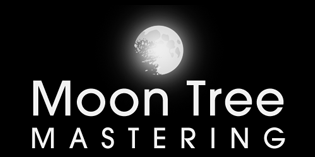Mastering is an essential step in the music production process that gives recordings a polished, professional sound. However, there are several common misconceptions surrounding the mastering process. In this article, we aim to debunk these myths and provide you with a clear understanding of what mastering truly entails.
Mastering Will Fix a Bad Mix
One of the most common misconceptions is that mastering can salvage a poorly mixed recording. While mastering engineers can enhance certain aspects of a mix, they can’t magically fix major issues. It is crucial to ensure that the mix is well-balanced and sounds good before sending it for mastering.
Louder is Always Better
Many believe that making a track louder during mastering will automatically make it better. However, loudness should not be the sole objective of mastering. A skilled mastering engineer focuses on preserving dynamics, clarity, and overall balance, rather than just increasing the volume.
Mastering Can Fix Poor Quality Recordings
Mastering cannot turn a low-quality recording into a high-quality one. The mastering process can only enhance the existing qualities of a recording. It is vital to capture a good-quality recording during the initial production stages to ensure the best possible outcome during mastering.
Mastering Is Only for Commercial Releases
Mastering is not exclusive to commercial releases. Whether you’re an independent artist, a podcaster, or a hobbyist, mastering can elevate the quality of your audio. It helps ensure that your final product sounds polished and professional, regardless of your intended audience.
Mastering Can Make Any Track Sound Amazing
While mastering can certainly enhance the sound of a track, it has its limitations. A poorly recorded or poorly produced track will only benefit so much from mastering. It is crucial to invest time and effort into the recording and mixing stages to achieve the best possible results.
DIY Mastering Software Is as Good as Professional Mastering Engineers
With the proliferation of DIY mastering software, some may believe that they can achieve professional-level results on their own. While these tools can be helpful for quick fixes and basic adjustments, they cannot replicate the expertise and nuanced decision-making of a professional mastering engineer.
Mastering Is a Quick and Easy Process
Mastering is a meticulous and time-consuming process that requires attention to detail. It involves tasks such as equalization, compression, stereo enhancement, and balancing the overall frequency spectrum. A skilled mastering engineer dedicates ample time to understand the nuances of each track and tailors the process accordingly.
Mastering Only Involves Adjusting Volume Levels
While volume adjustment is an essential part of mastering, it is far from the only task. Mastering also involves correcting any frequency imbalances, enhancing stereo width, applying harmonic excitement, and ensuring compatibility across different playback systems. It is a holistic process that aims to optimize the overall sonic quality.
Mastering is the Same as Mixing
Mixing and mastering are distinct processes, each with its own purpose. Mixing involves combining and balancing individual tracks to create a cohesive, balanced mix. On the other hand, mastering focuses on optimizing the mix as a whole, preparing it for distribution, and enhancing its sonic characteristics.
Mastering Should Be Done on the Final Mix
While it is common to have the mastering process as the final step, it is not set in stone. In some cases, it can be beneficial to involve a mastering engineer at an earlier stage to provide feedback and suggestions during the mixing process. Collaboration between the mixing and mastering stages can lead to even better results.
Conclusion
Understanding the common misconceptions about the mastering process is crucial for anyone involved in music production. Mastering is not a magic fix, but rather a skilled craft that enhances the quality of a recording. By debunking these myths, we hope to encourage a more informed and realistic approach to the mastering process.
FAQs
Can I master my own tracks? While it is possible to master your own tracks using DIY software, it is advisable to seek the expertise of a professional mastering engineer for the best results. They bring experience, technical knowledge, and a fresh perspective to the process.
How long does the mastering process take? The duration of the mastering process depends on various factors such as the number of tracks, their length, and the complexity of the material. It is best to consult with a mastering engineer to get an estimate based on your specific project.
Is mastering necessary for digital distribution? Mastering plays a crucial role in preparing your tracks for digital distribution. It ensures that your music translates well across different platforms and playback systems, giving it a competitive edge in the crowded online music landscape.
Can I make my track louder after mastering? While it is possible to adjust the overall loudness of a track after mastering, it is recommended to consult with a mastering engineer. They can guide you on the optimal loudness levels and make necessary adjustments without compromising the sonic integrity.
How can I find a reliable mastering engineer? Finding a reliable mastering engineer can be done through recommendations from fellow musicians, online research, or seeking the services of reputable mastering studios. It is essential to review their portfolio and communicate your specific needs to ensure a successful collaboration.
Remember, professional mastering can significantly enhance the quality of your recordings and give your music a competitive edge in today’s industry. Embrace the process, debunk the myths, and take your tracks to new heights of sonic excellence.
